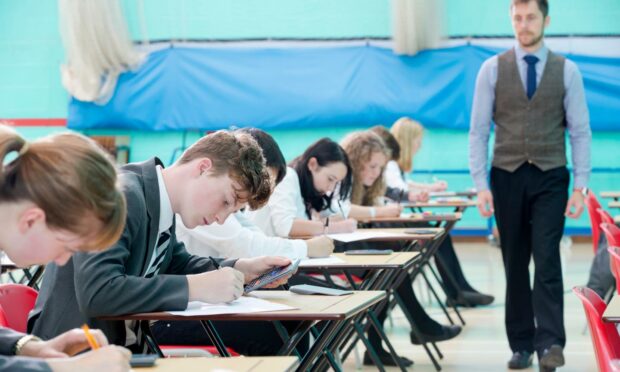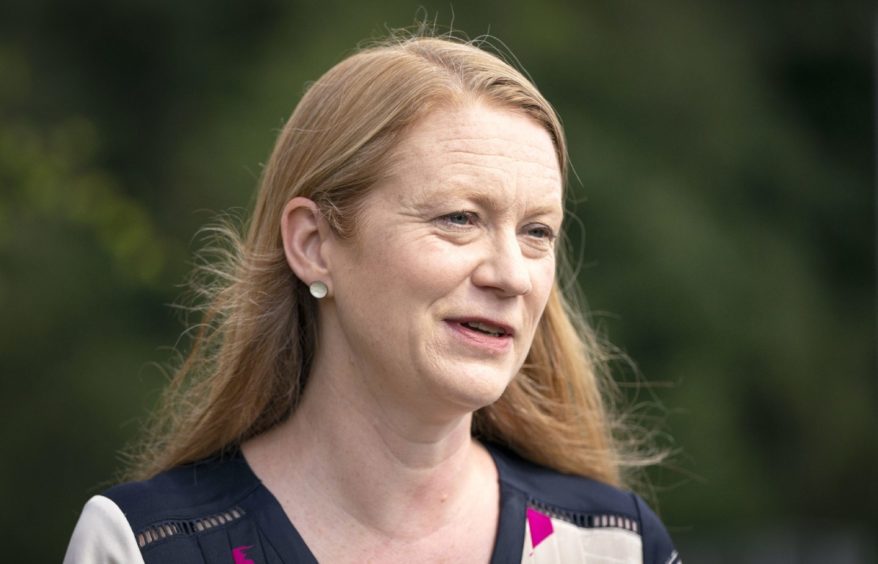Scrapping exams in S4 and replacing them with a graduation certificate could form part of an overhaul of Scotland’s qualification system.
It is among suggestions in a report by the OECD which sets out options for senior phase qualifications based on a combination of teacher assessment and exams simplification.
Scottish schoolchildren face “exam loading” from S4 onwards which may be limiting their learning, according to the working paper produced by Professor Gordon Stobart, an honorary research fellow at Oxford University.
As well as “decluttering” the historic exams diet, he said introduction of a graduation certificate could better capture students’ capabilities.
Prof Stobart’s report follows on from the Organisation for Economic Co-operation and Development review in June which concluded the modern Curriculum for Excellence clashed with a 19th Century exams legacy.
Other suggestions made include:
- increased use of online exam resources and oral presentations
- seeking pupils’ views in making decisions around assessment
- enhancing the role of vocational qualifications
Education Secretary Shirley-Anne Somerville said the options would be given “full consideration”.
She said: “Our decision to cancel exams as a result of the pandemic rightly sparked a great deal of discussion about the best way to recognise learners’ achievements and how we continue to meet their needs.
“That is why we asked the OECD to undertake this vital work and I welcome this important contribution from Professor Stobart, which is informed by how other countries run an assessment process.
“Working with teachers, parents and young people as well as other stakeholders we will give full consideration to the options that Professor Stobart has outlined.
“This will form part of our work to ensure that every part of our education system is designed so that young people can demonstrate their full potential.”
“Historic two-term dash”
Prof Stobart said few countries shared the British tradition of exams at the end of compulsory schooling, and that only 12% of pupils now leave at the end of S4 compared to 45% in 2009/10.
After exams were cancelled for the first time in 2020 the use of a statistical algorithm in making awards and the resultant public outcry emphasised “the fragility of the assessment system”, he said.
Exams were cancelled again last year but the Scottish Government has said they will be held in 2022 if it is safe to do so.
Scotland’s current qualification system consists of teacher-assessed National 3 and National 4s and exams for National 5s, Higher and Advanced Highers.
It means three consecutive years of exams with the “historic two-term dash”, Prof Stobart said, which may limit depth and breadth of teaching.
These options are not new… it appears that each time the embedded examination tradition has prevailed.”
Professor Gordon Stobart
A school graduation certificate or diploma could, he said, include school-based assessments, activities inside and outside school and broader attainment, aligning better with CfE and allowing more in-depth preparation for Higher exams.
But he says: “These options are not new, they were discussed both in the design of CfE for secondary schools and at the formulation of the new National Qualifications.
“It appears that each time the embedded examination tradition has prevailed.”
The Stobart report was welcomed by the EIS teaching union, which said there was evidence “assessment overload” was contributing to mental health difficulties, particularly among girls.
Assistant secretary Andrea Bradley said: “A shift away from annual presentation and high stakes exams towards a model built more firmly on continuous assessment, and free from SQA quotas, would, as we have seen from the last two years’ SQA results, lead to stronger and more equitable outcomes for Scotland’s students.”
Following the publication of the OECD’s main report in June, it was announced the SQA would be replaced with a curriculum body.

